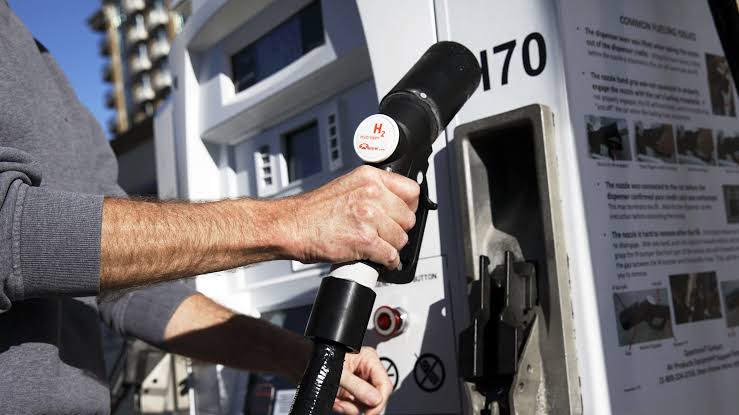By Obabueki Victor Nosakhare
Australia’s natural renewable energy advantage in the race to create a green hydrogen industry is at risk of being overwhelmed by “huge and aggressive” policy support in the US and the Middle East, according to Fortescue Future Industries’ Guy Debelle.
Debelle, formerly FFI’s chief financial officer and now serving as a director, said the Biden administration’s Inflation Reduction Act was mostly aimed at accelerating decarbonisation and was “one of the largest pieces of industrial policy we’ve ever seen”. Without a formal spending cap, it could eventually top $US1trillion ($1.44tn).

“It’s not just money,” Debelle told a gathering of business economists in Sydney on Wednesday. “It’s actually people, it’s expertise and knowhow, which [are] migrating to the US.”
Oil-rich Middle Eastern nations had also “seen the writing on the wall” of a shift off fossil fuels and were pouring resources and making land available for firms to tap renewable energy resources and develop a hydrogen sector.
“There’s a risk that, despite Australia’s great comparative advantages in green energy, the US and the Middle East are going to eat our lunch,” Debelle, who was also formerly a deputy governor of the Reserve Bank, said.
Many nations are investing heavily in hydrogen as an alternative fuel to oil, gas and coal. Debelle said the US spending had the potential to lower the cost of making hydrogen from $6/kilogram to $2.50/kg. That would be comparable to fossil fuels.
One outcome for Australia, if governments didn’t provide “a more targeted response”, was that markets to the north such as Japan and South Korea – which had relatively poor renewable energy resources – would be snapped up by the US or other rivals.
“I’m really concerned that we are missing out on a huge opportunity,” he said.
Debelle also warned Australian businesses to focus on reducing their greenhouse gas emissions directly, rather than relying on buying carbon offsets to try to cancel them out.
Those “misaligned decarbonisation incentives” could leave firms vulnerable to higher costs as carbon credits “will get more expensive”, he said. Future market restrictions, such as from the European Union, could also leave them vulnerable if they had not cut emissions.
“I’m concerned about people waiting for long … and that means we don’t get the nascent industry off the ground here,” Debelle said, adding he could foresee companies scrambling to find alternatives “but the solutions take three or four years to build”.
In Australia, scale could determine which localities succeeded in fostering a hydrogen industry. Western Australia, Queensland and South Australia were more likely to have the size for exports, given their solar and wind resources.
States such as NSW, though, had the scope to supply local industries. Fortescue Future Industries, for instance, was working with AGL Energy to repurpose its Liddell coal-fired power station after it shuts completely by April.
“The grid’s already set up,” Debelle said, explaining the Hunter Valley plant’s appeal.
Paul Barrett, chief executive for Hysata, a company developing electrolysis cells based on University of Wollongong research, said the US support included $US1bn for hydrogen electroliser production in an infrastructure bill.
“We could really be left behind in the race to net zero” emissions by 2050, he said.
Still, with ample renewable energy and land, a long coastline and access to key minerals from iron ore to lithium, Australia was well-placed to be competitive. “We truly are the lucky country,” Barrett said.
Hysata, meanwhile, was “ahead of plans” reported by Guardian Australia last year in its bid to produce electrolysis with a 95% efficiency. The devices use electricity to split water into hydrogen and oxygen.
The company is able to produce a kilogram with 41.5 kilowatt-hours of electricity, about 20% better than the industry standard of about 52KWh/kg, Barrett said.



